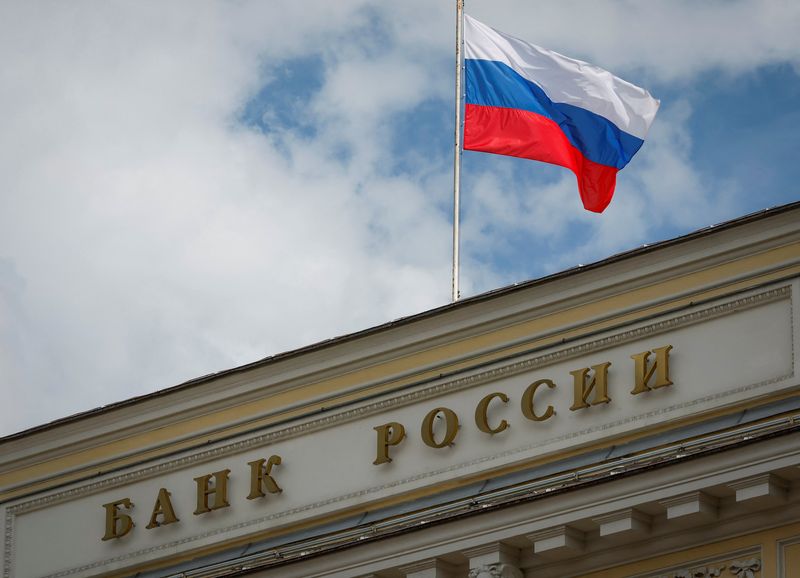Russian central bank says new rate hike in September is not a certainty
2024.08.29 12:37
By Gleb Bryanski
MOSCOW (Reuters) -Another key interest rate hike in September is not a certainty, as economic growth and lending are slowing down, a senior central bank official said on Thursday in the most dovish comments from the regulator since the July rate hike.
The regulator raised its benchmark rate by 200 basis points to 18% in July, the highest level in more than two years, citing economic overheating and high inflation rates as the main reasons. The central bank’s board will next meet on Sept. 13.
“The board will assess the feasibility of an additional key rate increase at upcoming meetings. This means that an increase at the next meeting is not predetermined, it will depend on the incoming data,” Deputy Governor Alexei Zabotkin told a news conference.
Zabotkin said consumer and corporate lending have been slowing down in August, but preliminary inflation data provided no signs that price growth has been moderating.
The central bank published a draft of its monetary policy guidelines for the next three years on Thursday, stating that it would need to maintain a tight monetary policy for a prolonged period to achieve a sustainable decrease in inflation, which is now running at over 9%.
In a high-risk scenario outlined in the guidelines, the regulator sees inflation rising to 13% to 15% in 2025.
In the base scenario, inflation will fall to 4.0% to 4.5% in 2025 as a result of the central bank’s measures, after which it will stay near the 4% target level.
The release of the guidelines follows a strong set of economic data published on Wednesday, showing solid growth in many sectors and high investment rates, prompting officials to hint at a brighter outlook for the year despite Western sanctions.
The central bank also predicted a fall in imports in 2024, due to problems with cross-border payments and logistical difficulties linked to Western sanctions.

Russian companies and officials have been complaining about delays in transactions with China for months after its banks grew more cautious and tightened compliance in response to Western threats of secondary sanctions for dealing with Russia.
“Imports will decrease in 2024 due to the strengthening of sanctions barriers related to payments and logistics,” the central bank said, although it predicted that the situation would improve in the medium term.








